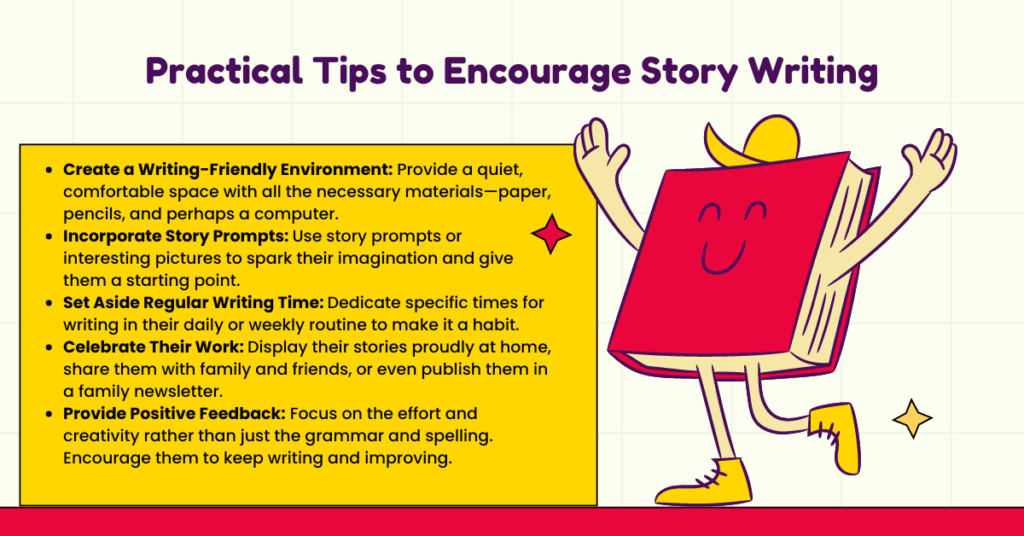
In a world increasingly dominated by screens and structured activities, the power of imagination can sometimes be overlooked. However, encouraging children to engage in creative endeavors, such as story writing, can have profound benefits on their development.
Here’s how story writing can positively impact kids:
Story writing allows children to explore their imagination without boundaries. They can create worlds, characters, and scenarios that are as wild or as realistic as they desire. This freedom nurtures their creative thinking and problem-solving skills, encouraging them to think outside the box.
When kids write stories, they are actively using language. This practice enhances their vocabulary, grammar, and spelling. It also helps them understand sentence structure and the flow of a narrative. The more they write, the more proficient they become at expressing their thoughts clearly and efficiently.
Storywriting engages various cognitive processes, such as memory, concentration, and organization. Children must remember details about their characters and plot, stay focused on their narrative, and organize their thoughts coherently. This mental exercise strengthens their cognitive abilities, making them better learners overall.
Writing stories allows children to explore and express their emotions. By creating characters and situations, they can process their feelings and understand different perspectives. This helps them develop empathy and emotional intelligence, which builds their personal and social development.
Completing a story gives children a sense of accomplishment. Sharing their work with others and receiving positive feedback can significantly boost their self-esteem. This newfound confidence can spill over into other areas of their lives, encouraging them to take on new challenges and believe in their abilities.
Writing and reading go hand in hand. When children write stories, they also read more—be it for inspiration or to improve their craft. This dual engagement with words fosters a love for reading, which is a key component of lifelong learning and intellectual growth.
Through story writing, kids learn how to convey their ideas and emotions effectively. They understand the importance of clarity, coherence, and engagement in communication. These skills are not only vital for academic success but also for effective interaction in everyday life.
For some children, writing can be a safe way to express thoughts and feelings they might find difficult to verbalize. It serves as a therapeutic outlet where they can explore their inner world without fear of judgment. This can be particularly beneficial for children who are introverted or experiencing emotional challenges.

Story writing is more than just an academic exercise; it’s a gateway to creativity, cognitive development, and emotional growth. We can help children unlock their imaginations and equip them with essential skills that will benefit them throughout their lives. So, hand them a pen and paper, and watch as their worlds unfold.
Join Storylane to help benefit your child’s creative experience.
Comments are closed